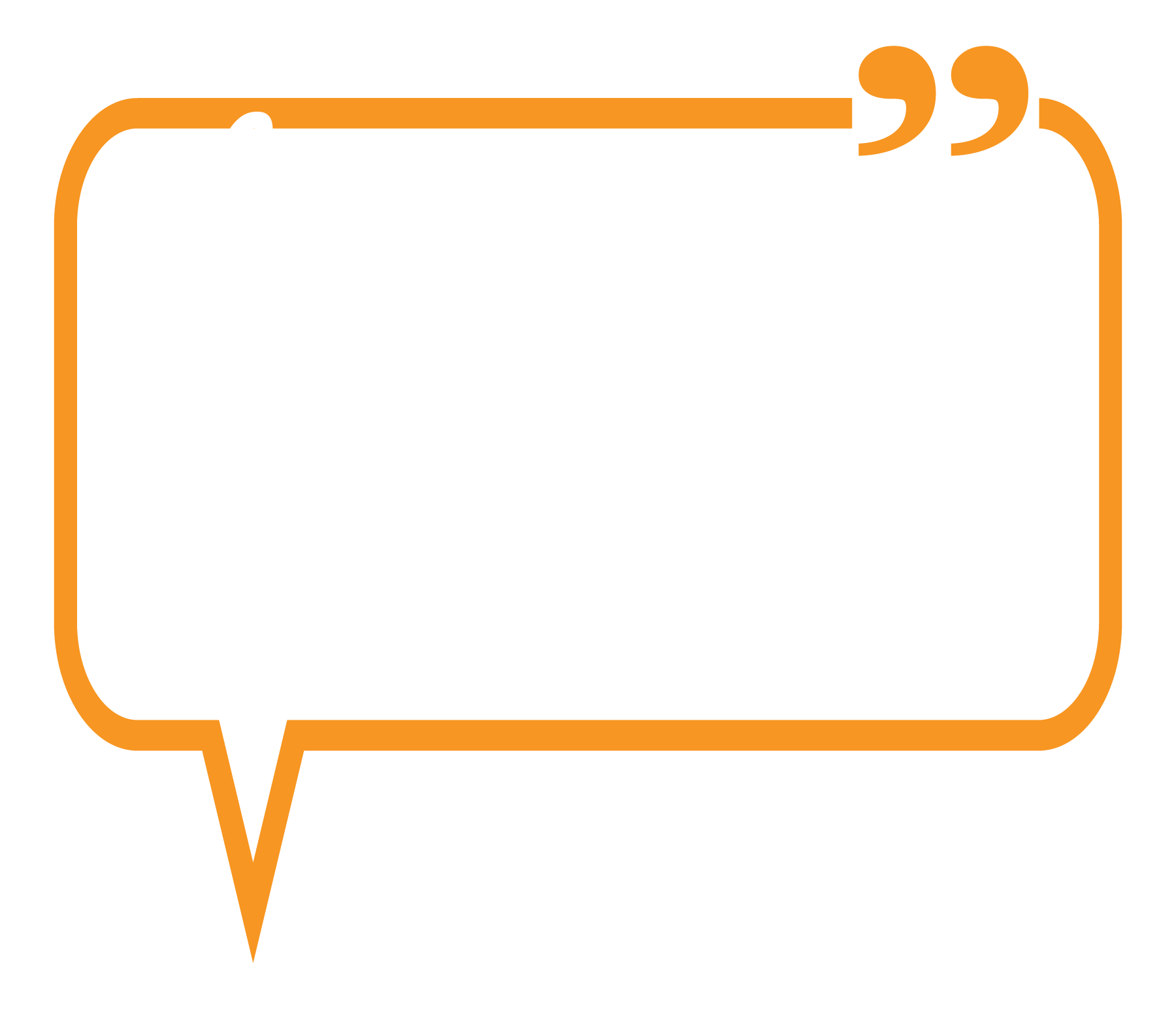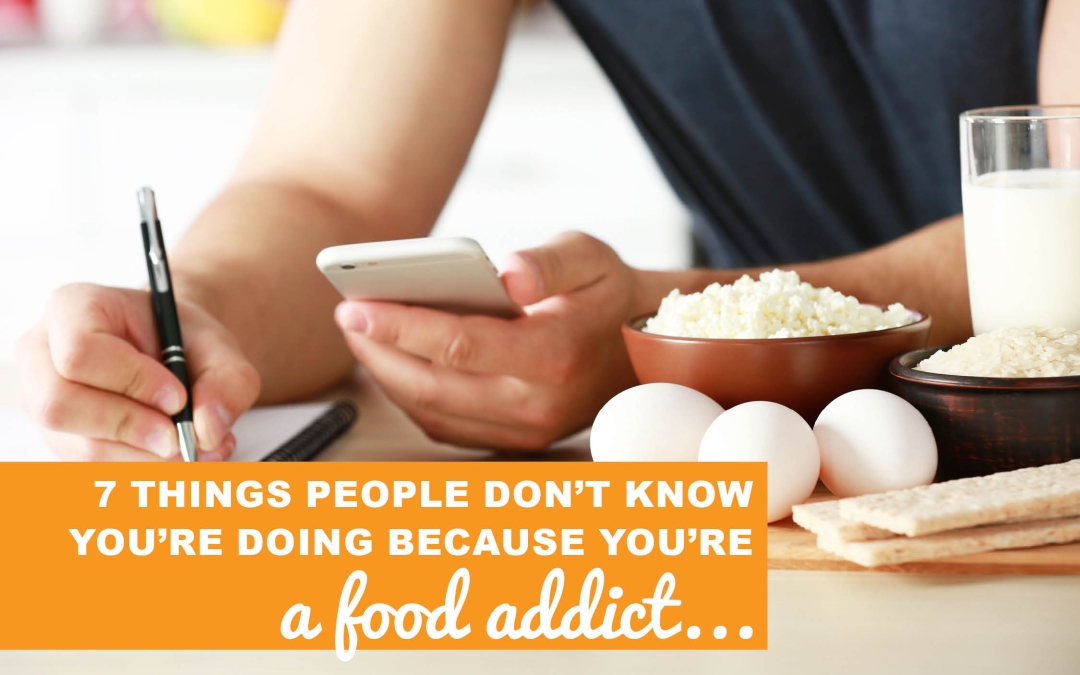Disclaimer: This post contains the experiences of a person who identifies as a food addict. The information in this post is not meant to replace advice from a medical or mental health professional. If you or someone you love is struggling with food addiction, please seek immediate medical attention!
I was scrolling through Facebook one day and I came across an article called, “9 Things People Don’t Realize You Are Doing Because You are OCD” (referring, of course, to Obsessive-Compulsive Disorder). It sounded interesting enough so I clicked it. Plus I have a few friends who self-identify as OCD so I wanted to see if it was “share-worthy.”
After reading the nine things (and seeing a LOT recognizable behaviors) I shared it on my timeline. My friends chimed in quickly – yes, yes, YES! These are things people don’t get about me!
So later that night, I was thinking about that article and also about the fact that I identify as a food addict. I’m also a weight loss surgery patient. I don’t believe all weight loss surgery patients are food addicts but I believe a good many of us are. And by virtue of our addictions we are different from other people and even other post-ops.
And here’s the deal. So many people have told me that I “pass for normal.” And I think I do. In general addicts always have an eye toward concealing their addiction, but more than anything I just want to blend into situations rather than stick out because of my addiction. So, like my OCD friends, I do things to pass for normal. And that led me to make a list of all the things I do, that folks may not even notice, because I am a food addict.
I think most of this list could apply to people who have not had surgery. If you see yourself in any of these, and you’ve wondered if you struggle with food addiction, I implore you – talk to your doctor! Food addiction is addiction. And addiction requires treatment. It’s a disease. And just like any other disease, you’ll need help and interventions to manage it.
I don’t keep extra food in my orbit outside home (not for emergencies, just in case, or anything else…)
I have a dear friend named Pam. She is not a food addict. I cannot tell you how many times we have had some variation of the following scenario in the nearly 8 years we’ve known one another.
My blood sugar drops. I’ve run out of glucose tabs. Panic! Panic!
Pam asks: Why don’t you have emergency snacks?
The simple answer: I am an addict. If there are snacks around I will eat them. I will not save them. This is not something I can always help doing. I can manage my emotions but if something throws me off kilter my addiction leads me straight to the nearest food source to self-medicate. I don’t want to do that…so I don’t keep extra food around.
There are certain foods I don’t eat because I can’t moderate them.
You don’t have to be a food addict to have food triggers. But with addicts, the triggers can be really, really dangerous because they can set you off into a spiral that’s really hard to get out of. It’s sort of like walking toward G-Force winds.
Most folks who know me well know about my love affair with peanut butter. (I love the stuff!) It’s actually not a trigger, mainly because my RNY anatomy can’t tolerate but so much fat before it shuts me down! But there are other foods that are a trigger.
While folks who aren’t addicts can find ways to moderate tempting foods (breaking them down into smaller portions, putting them in a place that’s not visible, etc.) as an addict I have not yet been able to do that with certain foods. They sing to me. In the voice of Harry Belafonte. And they don’t stop singing to me until I either get rid of them or eat them. That’s my reality.
When I’m done eating, the food has to go. And I’m anxious until it is.
When post-ops go out to eat, we rarely finish our plates. And I’ve had more than one time in my life where I’ve been forced to sit with a half-eaten plate of food in front of me. Let me tell you a little secret.
When that happens, we could be having the MOST life-changing conversation EVER…and I can’t hear a word you are saying.
That’s because I’m anxious. Because there is food. And it is UNEATEN! Must. Eat. The. Food. Now some may say this is “Clean Plate Syndrome.” Except my mom didn’t raise me that way. It truly is the fact that in my mind I WANT one more bite. Even if I’m full. Even if I’m a little nauseous. I want the bite because it is THERE and I can see it.
So after I’m done eating, the food has to go. If I’m in a restaurant I ask for it to be wrapped. If I’m at home I’ll wrap it and put it in the fridge (or toss it if I don’t want it anymore). But it cannot stay in my orbit. Many times when I am eating out with others, I’ll place a napkin over my food so that it’s not visible anymore. That is so that I can be a courteous companion and actually participate in the conversation we are having.
I’m always calculating the nutrition of every meal. And if I can’t determine the nutrition, I won’t eat it!
Now this is another one that’s not that uncommon across the post-op spectrum but it seems curious to non-ops (folks who have not had surgery).
The best way I can explain it is this. I don’t trust my emotions or instincts. Not one little bit! Addict behavior can be hard to detect, even in yourself, and so you constantly have to be mindful of your behavioral choices.
Numbers, by contrast, don’t lie. So I set a general target for myself of the amount of calories, protein, etc. my body needs (based on MY body weight, level of activity, etc.) and generally try to stay within a comfortable range of that target. (Side note: It’s taken a LOT of therapy to get that laid back. I used to be a calorie-Nazi for real.)
Being a food blogger, I’ve gotten really adept at just knowing the caloric content of things. If I don’t know, I have apps that help me. But most of the time I’m calculating and re-calculating to make sure I’m good with my ranges. But if I can’t determine the calories of something? I don’t eat it! It stresses me out. And eating should not be stressful. So I just don’t go there.
If I’m eating out with you, I arrive the restaurant already knowing everything I will order
The internet. It’s wonderful for many reasons, one of which being most restaurant menus are online now. And many give caloric counts for their dishes.
I personally take it a step forward and actually suggest places to go where I either know the menu or can look it up. I don’t like to go into a restaurant blind. I’m pretty good at managing my addictive tendencies but I do have my moments. So if we are eating out, there’s a strong likelihood I know everything I’ll order before I’ve even pulled into the parking lot.
I’m tweaking my behavior to match yours.
This is actually one of the best ways I’ve figured out to pass for normal. I didn’t even realize I do it at first, but I actually do tend to mimic the behavior of the person I am with. So if the person I’m with only has one tiny piece of bread with their meal (and yes, I do eat bread, not a trigger), I only have one tiny piece of bread. If the person across from me eats slowly, I eat slowly.
I think I do this to keep the environment normal. It’s not my default to eat mindfully, or slowly, or intentionally. My addiction really only cares about all the foods getting into my stomach. But when in the presence of others I gravitate toward behaving how they behave.
This, of course, can backfire when I am eating with people who have as many food issues as me!
I try not to eat alone if I can help it.
This is partly owing to the fact that I’m an extrovert, but also because I like the accountability of eating with others. In my head, I think everyone is watching what and how much I eat. (This is not true.) When I eat with others, I don’t tend to overdo it because…what would they think? Honestly, that’s not the healthiest outlook to have but it has saved me more than a few times from going on complete benders with some food I’ve latched onto.
This list certainly isn’t exhaustive (and I invite you to add to it in the comments!) and it’s very particular to me. I hope by sharing this others will feel comfortable talking about their experiences with food addiction, especially with their bariatric and mental health professionals, so they can receive appropriate and adequate medical advice and interventions!
Too often our voices remain silent.


Super interesting! I don’t identify as a food addict but could be – I’ve never felt strongly one way or another. I identify with a couple of things on the list, but not all.
Hi Sarah,
Not all WLS patients are food addicts. If you were I think you would know it. The distinction between addiction and general overeating is a subtle one but it’s one you notice. Many times addicts don’t have just one food they can’t control themselves around. It’s food in general. And the addiction is something that severely impairs their lives in terms of relationships, social situations and health. That’s an oversimplification to be sure, but that’s the easiest way I know to think about it!
At any rate, some things food addicts struggle with are things non-food addicts struggle with as well. You don’t have to be a food addict to identify with the individual statements here, they are just a collection of things folks may not know that I do to manage my addictive tendencies around others.
Orbiting foods, I always have a snac bag (when I’m behaving) in he car to keep me out of drive-thrus
Moderation is out when it comes to popcorn, why must I buy a thing of popcorn when I know I can’t eat BUT I want it & do eat some.
I’ve noticed if I’m eating out with my “sister” or another friend, I will squeeze mustard or something over the food so that I can eat it or bring it home.
Maybe my rebellious side is in control of never logging food, intellectually I know I should but I don’t. My thoughts are if it’s written it’s true & I can’t hide it; if I don’t write it, I can forge about it.
I never know what I’m eating when we go out;if it’s family, I tend to order similar to them.
I’ve not thought of mirroring my companions, does that truly help?
Eating alone is where I can mindfully eat and pay attention
I may call OA & look into it. Thank you!!!!